Visiting a temple or any religious shrine for that matter is truly a source of peace and calm. The intricate architecture, the divine shrine, the aromatic prasad and the reverberating rituals leave one with a full heart. When it comes to allowing or disallowing men or women in the temple, more often women have been the one to face the ire of traditional bondage. There are many temples in India that are exclusively for women and where men are barred from entering the premises. There are a few temples that do not allow the entry of men and instead give women a lovely welcome to worship the deity and take part in the puja proceedings. In this blog we will be talking about the temples in India where men are not allowed. So Let's dig out the temple's name and reason or belief behind the restriction.
-
Attukal Bhagavathy Temple
The Attukal Bhagavathy Temple located in Kerala is one such temple where women are the dominant force. Located in a small town called Attukal in Kerala, Attukal Bhagavathy Temple is a shrine to Goddess Bhadrakali that is also known as the goddess of prosperity and salvation. It is said that the goddess killed the demon king Daruka who was believed to be born from the third eye of Lord Shiva. However you will be amazed to know that men are not allowed to enter this temple. Every year the temple organises a Pongala festival which is attended by over three million women and even made it to the Guinness Book of World Records. This festival is believed to be the largest gathering of women for any religious activity. Pongala is a 10-day festival which falls between February and March and women offer bangles to the goddess (Devi). During this 10 day festival male folks are not allowed to enter the premises of the temple that is very aptly known also as the Sabarimala of Women.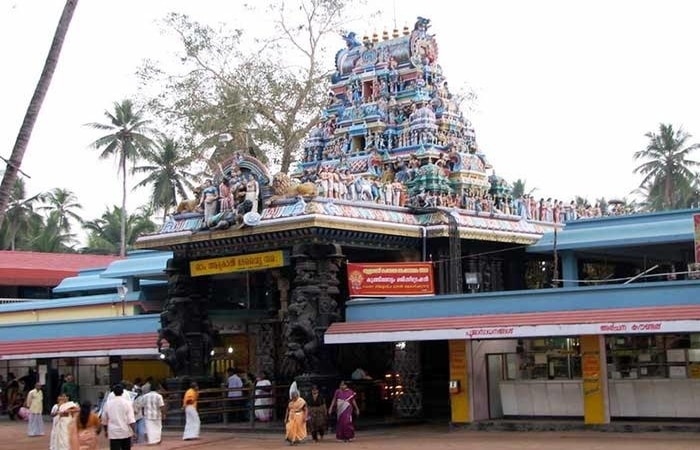
-
Chakkulathukavu Temple
Another temple in Kerala which is dedicated to Goddess Bhagavathi where men are not allowed to step inside during a certain period of the year. Like the Attukal Bhagavathy temple the Chakkulathukavu temple also celebrates the Pongala festival every year which is also basically a women-specific celebration. An annual ritual called ‘Naari Puja’ is organised in which male priests wash the feet of women devotees who had been fasting for 10 days. On this day only women are allowed to enter the temple and the male priest washes the feet of female devotees who have fasted for 10 days. This fascinating temple sees a crowd of lakhs of women devotees each year during the festival.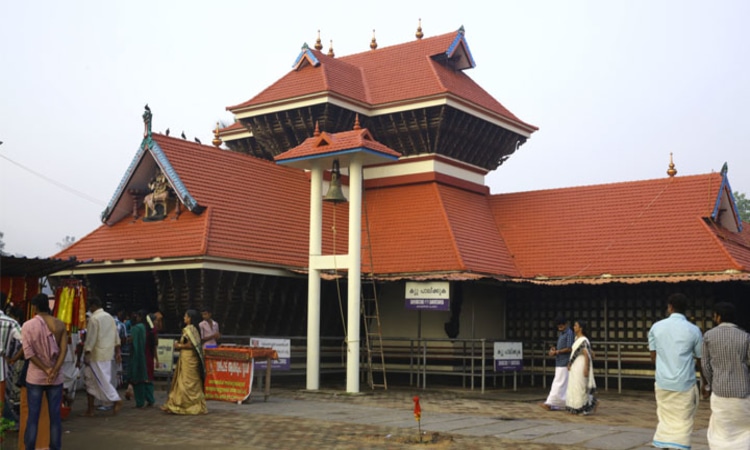
-
Brahmaji Temple
A 14th-century temple in a small town of Rajasthan, Brahmaji Temple of Pushkar has a huge following. It is one of the most significant temples of Lord Brahma. In this temple married men are barred from entering the temple premises. Despite being a temple that has a male God as the presiding deity the temple still has some restrictions in place when it comes to married male devotees. As per the legend Lord Brahma performed a yajna at the Pushkar Lake. He had to perform this yajna with his wife Goddess Saraswati. But since Goddess Saraswati was late for the event he married Goddess Gayatri and completed the ritual. The infuriated Goddess Saraswati cursed the temple. She cursed that no married man would be allowed to enter the inner sanctum of the temple. If he enters the temple, trouble shall arise in his marital life. Since that day men have been prohibited to enter the temple.Also read: Unusual Shrines
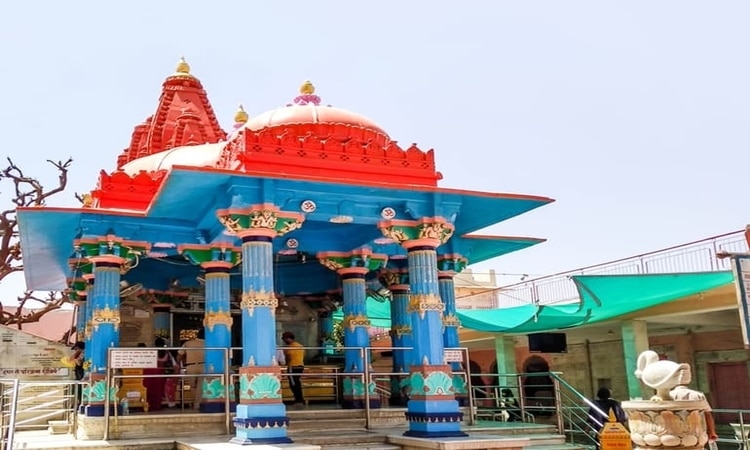
-
Mata Temple
Next on our list is the Mata Temple in Muzaffarpur, Bihar that permits only women in the temple. The temple follows its rules so strictly that even male priests cannot enter the temple premises during that time. It is believed that the deity which is worshipped in the temple is menstruating during this time and thus only women devotees can enter the premises. For this particular time period the temple becomes a women-only religious spot. It is only on the last day when the gates of the temple are thrown open to everyone and the rush of devotees becomes an all-inclusive affair.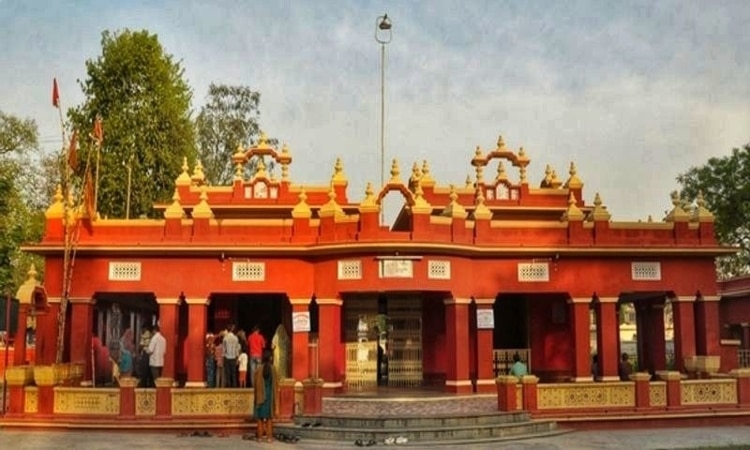
-
Kumari Amman Temple
Another temple that strictly prohibits the entry of men is Kumari Amman Temple or the Bhagawati Maa Temple in the Kanyakumari region. The Kumari Amman temple situated in Kanyakumari has Maa Bhagawati Durga in its sanctum sanctorum. Only sanyasis (celibate men) are allowed to enter till the gate of the temple while married men are prohibited from entering the premises. This temple is believed to be the place where Mata Parvati did penance to gain Lord Shiva as her husband. The temple is raised on the same spot. In this temple of Kanyakumari, Kanya (virgin) Ma Bhagawati Durga is worshipped by women only. This religious site is believed to be one of the 52 Shakti Peethas and is therefore considered to be immensely sacred by the devotees. According to the Puranas the right shoulder and (back) spine area of Sati’s corpse fell at this site which is housed inside the Kanya Kumari temple.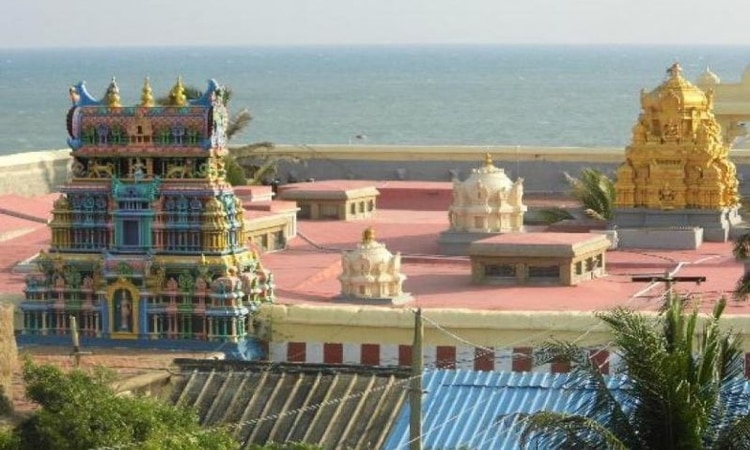
-
Kamakhya Temple
One of the most well-known temples in India where men are not allowed from entering its premises for a period of time is the Kamakhya temple in Assam. Just like Mata temple of Muzaffarpur, Kamakhya temple of Guwahati also turns out of bounds for the male devotees for five days each month. During these five days only women are allowed to serve the temple. In fact the menstrual cloth of Maa Sati which is considered sacred is distributed amongst the devotees too. According to the Kalika Purana, Kamakhya temple is dedicated to Goddess Parvati aka Sati and said to be the exact spot where Lord Shiva danced with Sati’s dead body. It is the place where the genitals of Sati fell off during the dance.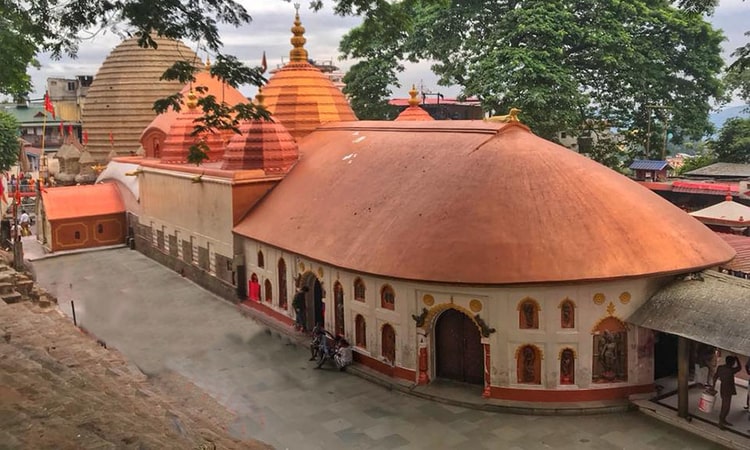
The Kamakhya Temple is known for its grand Ambubachi Mela, an annual rendezvous that draws a throng of devotees from all over the country and also worldwide. Ambubachi Mela is indeed a religious and spiritual carnival that sees the temple town come to life in all its varied devotees and pilgrims even as the main door of the temple is shut down for five days during the period when the Goddess is supposed to be menstruating. It is only female priests or sanyasis that are allowed to serve the temple during those days and the auspicious considered bleeding cloth of the Goddess Kamakhya is distributed among devotees.
That’s all for today! Tell us in the comments below about the place where you are planning to go first? Plan a trip to any of these temples and book your tickets through Trainman app. Download the Trainman App to check PNR Status of your booked ticket, Train inquiry, Seat Availability in any train and many such exciting features.

